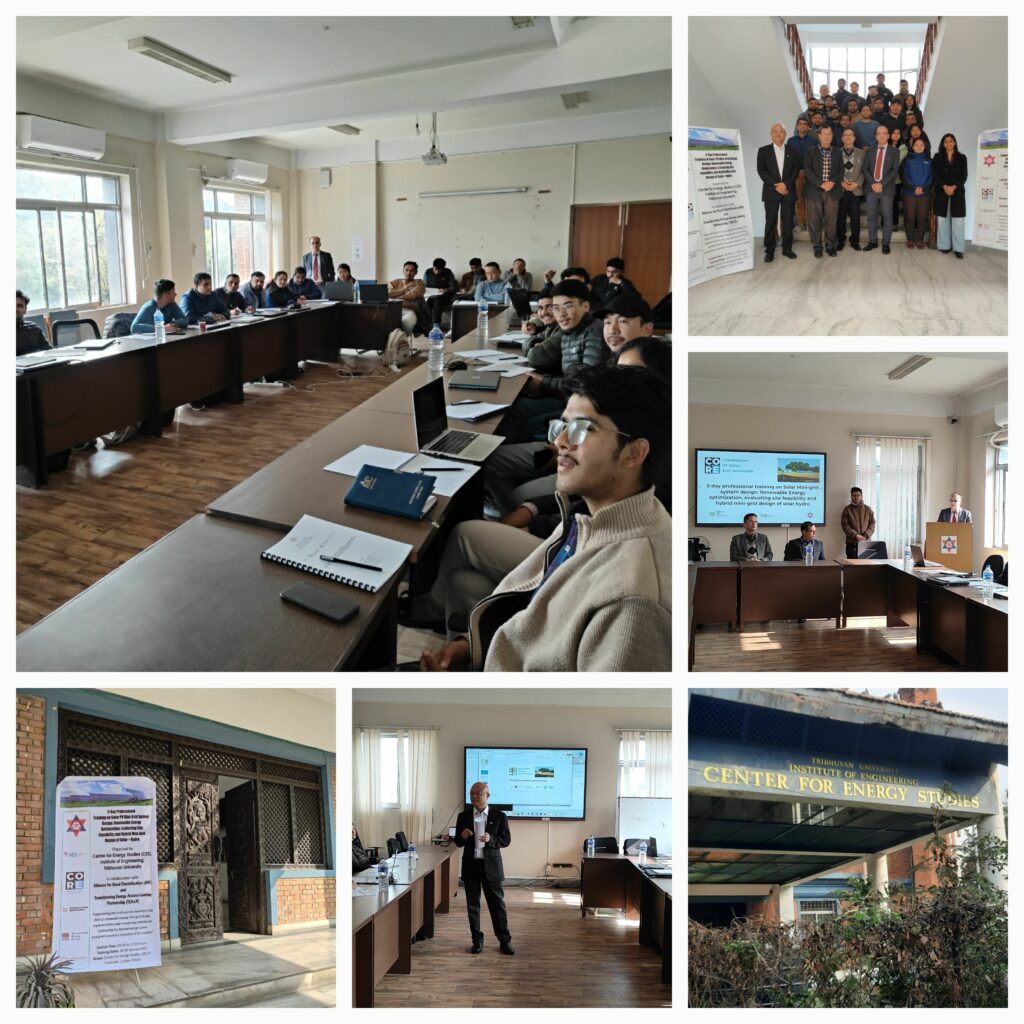Building capacity in Nepal: Training on solar PV mini-grid design with Homer-Pro simulation

The Centre for Energy Studies (CES), Institute of Engineering (IoE), Tribhuvan University (TU), successfully hosted a three-day training workshop on solar mini-grid system design from 28 to 30 January 2025. Held at the Tribhuvan University Campus of Engineering at Pulchowk in Kathmandu, Nepal, the workshop is part of CORE’s ongoing efforts to enhance local expertise in South Asia. Organised by CES in collaboration with Transforming Energy Access (UK-TEA), the training aimed to equip participants with technical skills in Nepal’s energy sector.
A total of 29 participants attended, including final-year engineering students, master’s degree students, faculty members of IoE, personnel from the Nepal Armed Forces, and female engineers with prior academic experience in the field.
The workshop provided participants with a comprehensive understanding of solar PV systems, including their operation, mini-grid components, and functions. Attendees engaged in practical exercises using Excel sheets to design solar PV systems based on energy demand data and solar resource assessments. The training also covered advanced topics in mini-grid system design, energy transmission, and distribution. Additionally, participants received hands-on experience using the Homer-Pro simulation software to design and analyse solar mini-grid systems. Health and safety considerations, including hazard assessment, workplace safety protocols, and asset protection, were also emphasised. The training concluded with assessments to evaluate participants’ understanding of system design, components, and software applications.

This training underscores CORE’s commitment to enhancing technical capabilities in the solar energy sector, fostering skill development among Nepalese engineering professionals and students. With the growing emphasis on renewable energy, such initiatives play a crucial role in preparing future engineers to drive the country’s transition towards clean and efficient energy systems.
